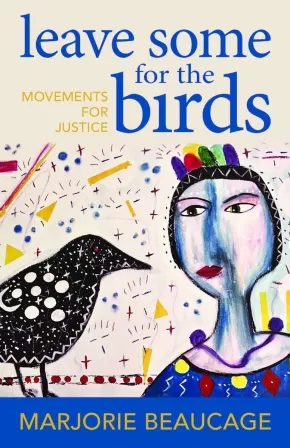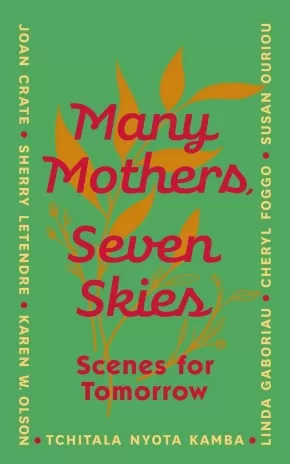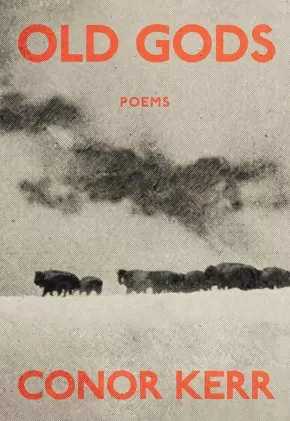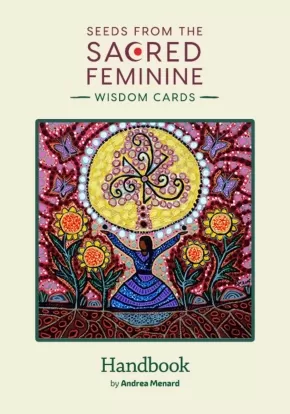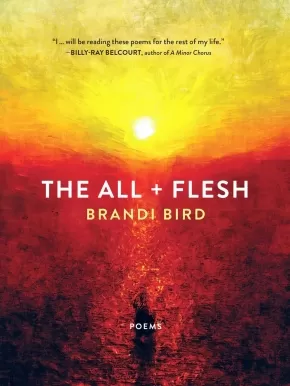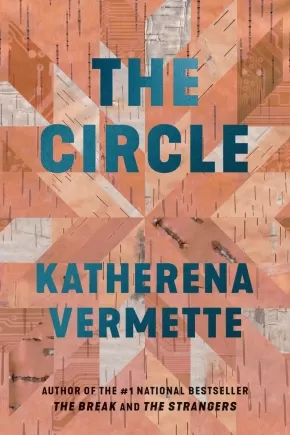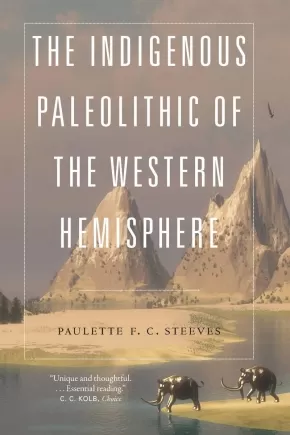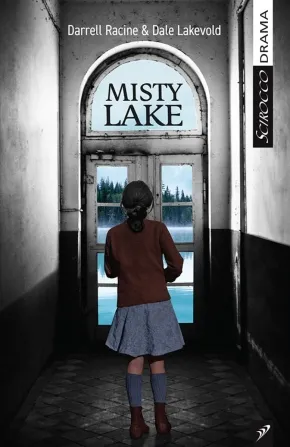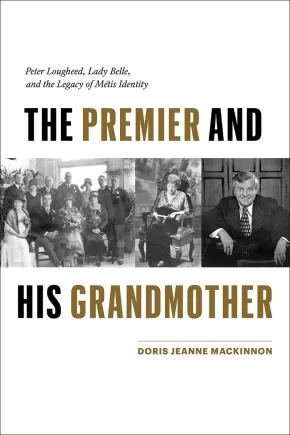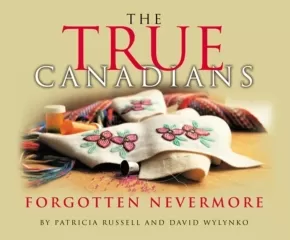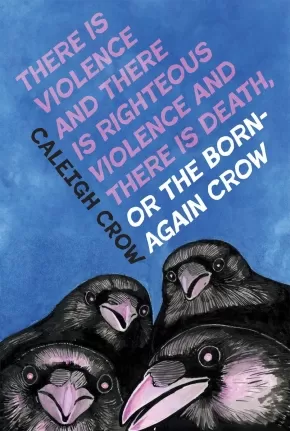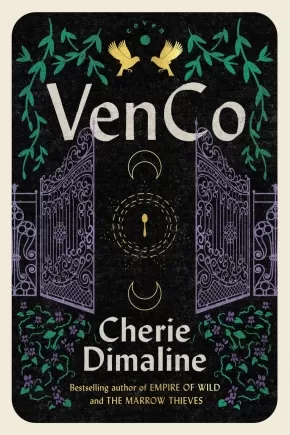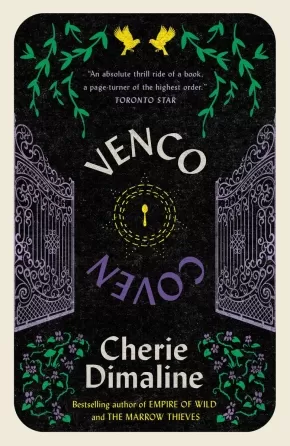
Métis
76
-
90
of
212 Results;
Sort By
Go To
of 15
leave some for the birds: movements for justice
$20.00
Format:
Paperback
Text Content Territories:
Indigenous Canadian; Métis;
Reading Level: N/A
ISBN / Barcode: 9781928120360
Synopsis:
Synopsis:
From acclaimed filmmaker, artist and activist Marjorie Beaucage comes a poetic memoir that reflects on seven decades of living and seeking justice as a Two Spirit Michif woman. Poems, poetic observations and thoughtful meanderings comprise this inspirational journal-memoir-poetry collection from a woman who has dedicated her life and her talent to creating social change. Unfolding the wisdom gained from experience, leave some for the birds: movements for justice offers guidance for younger activists following the author's trailblazing footsteps.
Reviews
"I have long admired Margie's tenacious ability to persevere in spite of the obstacles placed in front of her. She continues to challenge the status quo and hangs onto what is right and just. She awakens, supports and lifts the many voices who struggle to be heard. Her voice dives deep into the depth of unknown and bewildering waters. Yet, she bubbles to the surface, takes a breath and howls with a universal plea to pay attention to the injuries imposed on the land and its people. I am honored to walk with her."--Louise B. Halfe - Sky Dancer, author of The Crooked Good.
Additional Information
211 pages | 6.00" x 9.00" | 7 Illustrations | Paperback
Many Mothers, Seven Skies: Scenes for Tomorrow
$16.95
Format:
Paperback
Text Content Territories:
Indigenous Canadian;
Reading Level: N/A
ISBN / Barcode: 9781990601521
Synopsis:
Synopsis:
A diverse group of seven writers comes together to create seven tender scenes about their hopes for the future.
The Many Mothers Collective came together during the pandemic, hoping to make sense of the world they found themselves in. What evolved was their need to not only focus on the present moment, but on the world they will leave behind for their children and grandchildren, and for seven generations to come. In seven scenes for the stage, the members of the collective explore the past, where they come from, and the future, where they are going, with a deep sense of hopefulness rooted in resistance.
Additional Information
70 pages | 5.00" x 8.00" | Paperback
Old Gods: Poems
$19.95
Format:
Paperback
Text Content Territories:
Indigenous Canadian; Métis;
Reading Level: N/A
ISBN / Barcode: 9780889714465
Synopsis:
Synopsis:
Métis Ukrainian writer Conor Kerr’s sharp and incisive poems move restlessly across landscapes and time.
Conor Kerr’s poetry is in constant motion. 4Runners streak through the night, racing with coyotes and roving across the land. Buses travel from town to town, from one memory to another, from past to present. Friends and lovers search for each other on Instagram and find nothing. And always the natural world travels alongside: the watching magpies, woodpeckers and cedar waxwings, the coyotes and porcupines. Family is the crisp wings of mallard ducks flying at dawn, just as it is a game of crib, a Mario Kart race, a dance party.
Old Gods defies colonialism on the Prairies. Kerr situates his reader in the Métis mindset: the old gods of the land are alive within the rivers, the birds, the hills and the prairies that surround us, and they’ll always be here.
Additional Information
96 pages | 5.50" x 8.00" | Paperback
Seeds from the Sacred Feminine: A 52-Card Wisdom Deck with Handbook
$47.99
Artists:
Text Content Territories:
Indigenous Canadian; Métis;
Reading Level: N/A
ISBN / Barcode: 9781642509564
Synopsis:
Synopsis:
Embrace Your Divine Feminine Energy
Create new rituals and self-care habits with this oracle deck. These sacred inspirational cards inspired by land-based practises of the Metis people serve as a daily mental healer.
Re-energize and connect to the Metis culture. These oracle cards are the perfect way to help you slow down and awaken to the energy around and inside you. Andrea Menard writes beautifully while invoking connections to the land and indigenous teachings; use these cards as friendly reminders to dive into your divine feminine energy. Andrea Menard is a Metis woman whose Michif ancestry originates from St. Laurent, Manitoba, Canada. She is deeply influenced by Sacred Elements and guided by the teachings of her ancestral Grandmothers.
Enjoy colorful and beautifully layered art. These unique images bring emotional healing and a deep awakening to divine feminine energy. Sacred women, men, and gender-fluid individuals will find wisdom on every card. Enjoy 52 cards with beautiful images of original artwork by Metis painter, Leah Marie Dorion. Leah is an interdisciplinary Metis artist raised in Prince Albert, Saskatchewan, who views her Metis heritage as a unique bridge connecting all people to a greater knowledge.
Inside, you'll find:
• Ancient wisdom and teachings from Andrea Menard set to transform you
• Beautifully layered art from Leah Marie Dorion on a deck of cards set to awaken you
• A handbook guide set to spark your divine feminine energy
If you need a gift for the sacred woman in your life, you'll love Seeds of the Sacred Feminine.
Reviews
"What a feast! This collection of inspirational cards invoking the wisdom of the feminine is created entirely by Indigenous women, permeated by the fierce and tender heart of the Grandmothers. The artwork is glorious, the teachings are both luminous and grounded, the combination truly transformational. I will be gifting these cards, with the accompanying handbook, again and again."- Mirabai Starr, author of Wild Mercy and God of Love
"The Seeds from the Sacred Feminine is a delicate, gentle, and kind teaching that will help you get in touch with our sacred grandmothers, our guides for being in tune with nature and mother earth. Using this wisdom will draw you into the natural laws of Earth by helping you to return to emotional and mental harmony based on balancing yourself with the four sacred directions. The Messages are a special and comfortable way to be with the spirits and nature."- Barbara Hand Clow, author of Awakening the Planetary Mind and Alchemy of Nine Dimensions
"These are beautiful inspirational cards. They follow the medicine wheel paying attention to the land, water, wind and sun. May we all pay heed and allow our souls to rest upon any given day, to meditate on the thought and allow spirit to carry us to that place of wholeness." - Louise B. Halfe, author of The Crooked Good and Burning in This Midnight
"What a wonderfully refreshing idea. Truly inspired by the spirit of the female life-giver as it yields the tremendous opening of the passageway to life to be lived to its fullest potential. As has been prophesied the female energy is leading the way to renewal and prosperity as the Creator had intended." - Tom McCallum, Metis Elder, lodge keeper
"The Seeds From The Sacred Feminine wisdom deck is a powerful invitation to build a deeper relationship with all of creation. Each card carries beautiful medicine teachings that invoke a great understanding of all aspects of self. This deck carries a vibration of grace, love and truth. I highly recommend this gorgeous deck to all who wish to connect to Indigenous Earth and Spirit wisdom. It will enhance your divine gifts, remind you of your inherent knowing, and delight you with its beautiful artwork."- Asha Frost, Anishinaabekwe bestselling author of You are The Medicine
Additional Information
89 page handbook | 52 Cards | 4.00" x 6.00"
Teaching Where You Are: Weaving Indigenous and Slow Principles and Pedagogies
$32.95
Format:
Paperback
Text Content Territories:
Indigenous Canadian;
ISBN / Barcode: 9781487554019
Synopsis:
Synopsis:
Teaching Where You Are offers a guide for non-Indigenous educators to work in good ways with Indigenous students and provides resources across curricular areas to support all students. In this book, two seasoned educators, one Indigenous and one settler, bring to bear their years of experience teaching in elementary, secondary, and post-secondary contexts to explore the ways in which Indigenous and Slow approaches to teaching and learning mirror and complement one another.
Using the holistic framework of the Medicine Wheel, Shannon Leddy and Lorrie Miller illustrate the ways in which interdisciplinary thinking, a focus on experiential learning, and the thoughtful application of the 4Rs – Respect, Relevance, Reciprocity, and Responsibility – can bring us back to the principle of teaching people, not subjects. Bringing forth the ways in which colonialism and cognitive imperialism have shaped Canadian curriculum and consciousness, the book offers avenues for the development of decolonial literacy to support the work of Indigenizing education. In considering the importance of engaging in decolonizing and Indigenizing approaches to education through Slow and Indigenous pedagogies using the lens of place-based and land-based education, Teaching Where You Are presents a text useful for teachers and educators grappling with the ongoing impacts of colonialism and the soul-work of how to decolonize and rehumanize education in meaningful ways.
Reviews
"Shannon Leddy and Lorrie Miller weave a beautiful metaphorical tapestry of Slow and Indigenous ways of knowing and being that simultaneously honours each framework’s distinct features and identifies complementary principles, teachings, and pedagogies to create exciting new educational possibilities. In this era of truth and reconciliation, holistic pedagogies are needed to offer hope, love, care, and deep ways of feeling, being, knowing, and doing, which this book offers, and so much more." — Jo-ann Archibald, Professor Emeritus of Educational Studies, University of British Columbia
"Teaching Where You Are is a must-read for educators and preservice teachers who are dedicated to responsibly providing for Indigenous ways and perspectives in their professional practice. With recognition of the discomfort educators might feel approaching Indigeneity in their work, Leddy and Miller acknowledge and help us, as settlers, to activate the process of unpacking and unlearning colonizing perspectives. This book offers a pathway of knowledge for teachers to develop the self and nurture authentic, human approaches to walking alongside Indigenous wisdom and cross-cultural understanding in their classrooms.” — Sheryl Smith-Gilman, Associate Dean of Academics, Faculty of Education, McGill University
Educator Information
Table of Contents
List of Illustrations
Abbreviations
Foreword: Weaving and Reweaving Indigenous Education in New Ways through the Timelessness of Transformative Thought, Teaching, and Learning xvii
Herman Michell
Preface
Acknowledgements
1. Tawâw
Bringing Indigenous Knowledge and Pedagogies into the Class
Indigenous Ways and Reconciliation
The Medicine Wheel Framework, Our Loom
Warp and Weft: Connecting Slow to Indigenous Ways
2. Building Decolonial Literacy for Indigenous Education
Historically Rooted Thought: We Are All Colonized People
It Is Not about the Lesson Plans
Ontologies
Identity
Place
Relationship
Weaving
Sourcing and Preparing Materials
3. Slow Ways and Indigenous Ways
Disconnecting from the Clock and Caring Deeply
Experiential
Land Conscious/Place Conscious
Deeply Relational
Internal Connection
Spinning
4. East – Spiritual – Respect
August on the Salish Sea: Tucked into a Bay
Dyeing the Yarn before the Weave
5. South – Emotional – Relevance
Why Emotion Matters
Decolonizing Is a Slow and Careful Business
Taking Trauma into Account
Developing Effective Practices
Circle Pedagogy
Winding the Wool
6. West – Physical – Reciprocity
The Unseen
The Visible, Physical, Material World
In the Classroom
Pedagogy that Nurtures
Relational Place-Conscious Pedagogy
Setting up the Loom
7. North – Intellectual – Responsibility
What Counts as Knowledge? How Much Knowledge Counts?
It Really Isn’t about the Lesson Plans
Adding an Indigenous Lens
Developing Effective Practices
Kendomang Zhagodenamonon Lodge
Button Blankets and Starblankets
Tiny Orange Sweater Project
Summing Up
Weaving and Finishing
8. Pimoteh (Walking)
References
Index
Additional Information
192 pages | 6.00" x 9.00" | 15 colour illustrations and 2 b&w figures | Paperback
The All + Flesh: Poems
$19.99
Format:
Paperback
Text Content Territories:
Indigenous Canadian; First Nations; Anishinaabeg; Ojibway; Saulteaux; Cree (Nehiyawak); Métis;
Reading Level: N/A
ISBN / Barcode: 9781487011826
Synopsis:
Synopsis:
Brandi Bird's frank, transcendent poetry explores the concepts of health, language, place, and memory in this long-anticipated debut collection.
Brandi Bird's long-anticipated debut poetry collection, The All + Flesh, explores the concepts of health, language, place, and memory that connect its author to their chosen kin, blood relatives, and ancestral lands. By examining kinship in broader contexts, these frank, transcendent poems expose binaries that exist inside those relationships, then inspect and tease them apart in the hope of moving toward decolonial future(s). Bird's work is highly concerned with how outer and inner landscapes move and change within the confines of the English language, particularly the "I" of the self, a tradition of movement that has been lost for many who don't speak their Indigenous languages or live on their homelands. By exploring the landscapes the poet does inhabit, both internally and externally, Bird's poems seek to delve into and reflect their cultural lineages-specifically Saulteaux, Cree, and Métis-and how these transformative identities shape the person they are today.
I am made of centuries & carbohydrates
the development of my molars
the hunger the teeth grew
has been with me since childhood
I can't escape the mouths of others
Awards
- 2024 Poetry in English, Indigenous Voices Awards
Reviews
"Since hearing Brandi Bird at a reading in a park in summertime recite the lines, "I know / then that there is hope / until I die & then / there is other / people's hope," I have thought about them many times, they have merged with my own consciousness. That's the power of Bird's poems-they resonate at such a visceral and cerebral level that they become a part of you. The All + Flesh marks the arrival of an endlessly moving and astounding voice in Indigenous poetry. I, for one, will be reading these poems for the rest of my life." — Billy-Ray Belcourt, author of A MINOR CHORUS
"In The All + Flesh, Brandi Bird maps the psychic space between 'NDN compartmentalization' and split prairies, from bus depots to 'endocrine storms,' from LiveJournal to a living history of relocation under land theft. 'My body is not an empire but first contact happened at / birth' and 'I eat / until my mouth needles / the dark.' With exacting lucidity, Bird's lyrics chart the body as a reservoir for colonial malice, a site of resistance, and a conduit for a voice that is visceral, immediate, and uncompromising. An absolute triumph of a debut."— Liz Howard, author of Letters in a Bruised Cosmos
"A stunning collection with carefully crafted, searing poems that refuse artifice, indirectness, and voyeurism. Brandi Bird writes the experience of illness and Indigeneity into a world that accepts illness only if it perpetuates colonial beauty and body standards, then interrogates the racist systems that disallow care and compassion for Indigenous people. These poems are tender and surprising; they are holes travelling through time and space. They are able to shapeshift God into pills, prayers, seeds, and stars. The All + Flesh has taken root in my mind and I'm happy to let it grow there." — Jessica Johns, author of Bad Cree
Additional Information
96 pages | 6.00" x 8.00" | Paperback
The Circle (HC) (2 in Stock)
$32.00
Format:
Hardcover
Text Content Territories:
Indigenous Canadian; Métis;
ISBN / Barcode: 9780735239654
Synopsis:
Synopsis:
“The Circle is a polyphonic masterpiece.” —Erika T. Wurth, author of White Horse
From the award-winning and #1 bestselling author of The Break and The Strangers comes a poignant and unwavering epic told from a constellation of Métis voices that consider the fallout when the person who connects them all goes missing
The concept was simple. You sit a bunch of people in a circle—everyone who hurt, everyone who got hurt, all affected—and let them share. Some people, it helped them heal, for sure. Others went in angry and left a different kind of angry. Learned how the blame belonged on the system, the history, the colonizer, the big things that were harder to change than one bad person.
The day that Cedar Sage Stranger has been both dreading and longing for has finally come: her sister Phoenix is getting out of prison.
The effect of Phoenix’s release cascades through the community. M, the young girl whom she assaulted, is triggered by the news. Her mother, Paulina, is worried and her cousin is angry—all feel the threat of Phoenix’s release. When Phoenix is seen lingering outside the school to catch a glimpse of her son, Sparrow, the police get a call to file a report—but the next thing they know, she has disappeared.
Amid accusations and plots for revenge, past grievances become a poor guide in a moment of danger, and the clumsy armature of law enforcement is no match for the community. Cedar and her and Phoenix’s mother, Elsie, continue down different paths of healing, while everyone in their lives form a circle around the chaos, the calm within the storm, and the beauty in the darkness.
Fierce, heartbreaking, and profound, Vermette’s The Circle is the third and final companion novel to her bestsellers The Break and The Strangers. Told from various perspectives, with an unforgettable voice for each chapter, the novel is masterfully structured as a Restorative Justice Circle where all gather—both the victimized and the accused—to take account of a crime that has altered the course of their lives. It considers what it means to be abandoned by the very systems that claim to offer support, how it feels to gain a sense of belonging, and the unanticipated cost of protecting those you love most.
Reviews
“Like Orange's There There, The Circle is a polyphonic masterpiece. Brutal at turns, and tender at others, it's about the tremendous impact one person can have on an entire community.” —Erika T. Wurth, author of White Horse
“Like its sisters in this trilogy, every page of The Circle is a steady and rhythmic observation of our humanity as Indigenous people. It asks what restitution and justice could possibly feel like when we, as Indigenous people, are all subjects of this unjust empire called Canada. This book is truth in all her fluid forms. It is an altar of love, hope, and grief amidst the relentless torment of settler colonialism. Katherena Vermette, in her distinctly elegant style, offers a glimpse into the devastating beauty of our people and our capacity to keep moving forward, one foot at a time, guided by the love and strength of our ancestors. It reminds us that, in the end, all that’s left is the stories we carry with the people we loved.”—Elle-Máijá Tailfeathers, filmmaker and actor
“A perfect companion to The Break and The Strangers, Katherena Vermette’s The Circle draws us back into the lives of characters who we’ve come to know so intimately that their heartache is our heartache. With each new perspective as distinct and vivid as the last, The Circle acts as an unsettling reminder that the systems designed to help the most vulnerable too often end up betraying them. This is a stellar finale with an ending that will leave you both heartbroken and hopeful.”—Amanda Peters, author of The Berry Pickers
Additional Information
272 pages | 6.00" x 9.00" | Hardcover
The Indigenous Paleolithic of the Western Hemisphere
$40.95
Format:
Paperback
Text Content Territories:
Indigenous;
Reading Level: N/A
ISBN / Barcode: 9781496234704
Synopsis:
Synopsis:
The Indigenous Paleolithic of the Western Hemisphere is a reclaimed history of the deep past of Indigenous people in North and South America during the Paleolithic. Paulette F. C. Steeves mines evidence from archaeology sites and Paleolithic environments, landscapes, and mammalian and human migrations to make the case that people have been in the Western Hemisphere not only just prior to Clovis sites (10,200 years ago) but for more than 60,000 years, and likely more than 100,000 years.
Steeves discusses the political history of American anthropology to focus on why pre-Clovis sites have been dismissed by the field for nearly a century. She explores supporting evidence from genetics and linguistic anthropology regarding First Peoples and time frames of early migrations. Additionally, she highlights the work and struggles faced by a small yet vibrant group of American and European archaeologists who have excavated and reported on numerous pre-Clovis archaeology sites.
In this first book on Paleolithic archaeology of the Americas written from an Indigenous perspective, The Indigenous Paleolithic of the Western Hemisphere includes Indigenous oral traditions, archaeological evidence, and a critical and decolonizing discussion of the development of archaeology in the Americas.
Reviews
"The Indigenous Paleolithic of the Western Hemisphere offers a refreshing perspective of the peopling of what was once called the New World."—Justin A. Holcomb and Curtis N. Runnels, Journal of Island and Coastal Archaeology
"I want people to read this exciting book and challenge our own assumptions about what we know about Indigenous people's past. Reading books such as this one is important if archaeologists are to confront their own troubling history and challenge themselves to tell different stories which celebrate Indigenous people, their land, and their own ideas about where they come from."—Matthew E. Hill, Journal of the Iowa Archeological Society
“Writing in the vein of scholars such as Vine Deloria Jr., Paulette Steeves’s critique of the ‘Clovis-first’ model of peopling of the Americas both engages with and moves beyond current ideas about how and when people first came to these lands. The research presented in this book questions the ways archaeologists have traditionally constructed narratives of movement and arrival without considering Indigenous ways of knowing. This is an important and timely contribution to the field.”—Kisha Supernant (Métis), associate professor of anthropology at the University of Alberta
“A timely analysis of the ethnocentric influences on past and present scientific inquiry and archaeological practice from the perspective of an Indigenous archaeologist. Steeves brings together a host of voices espousing the importance of contextual relationships in hypothesis development and archaeological analysis.”—Kathleen Holen, director of the Center for American Paleolithic Research
“Written from an essential Indigenous perspective, this insightful book examines the existence of First Peoples in the Western Hemisphere for at least 50,000+ years longer than previously accepted and uncovers the reasons this theory has been dismissed for decades.”—Karla Strand, Ms. Magazine
Additional Information
328 pages | 6.00" x 9.00" | 2 photographs, 8 illustrations, 5 maps, 7 tables, 1 appendix, index | Paperback
The Misty Lake
$17.95
Format:
Paperback
Text Content Territories:
Indigenous Canadian; First Nations; Dene; Métis;
Reading Level: N/A
ISBN / Barcode: 9781990738302
Synopsis:
Synopsis:
Misty Lake tells the story of a young Metis journalist from Winnipeg who travels to a Dene reserve in Northern Manitoba to conduct an interview with a former residential school student. What Mary imparts in her interview will change Patty's life profoundly, allowing the journalist to make the connections to her own troubled life in the city. Patty knows that her Metis grandmother went to residential school when she was a girl. But Patty hasn't understood until now that she's inherited the traumatic legacy of residential school that was passed down to her mother from her grandmother. With this new understanding, Patty embarks on a healing journey. It will take her to the Dene fishing camp at Misty Lake, a place of healing, where, with Mary, she will learn that healing begins when you can talk about your life.
Additional Information
80 pages | 5.50" x 8.50" | Paperback
The Premier and His Grandmother: Peter Lougheed, Lady Belle, and the Legacy of Métis Identity
$32.95
Format:
Paperback
Text Content Territories:
Indigenous Canadian; Métis;
Grade Levels: 12; University/College;
ISBN / Barcode: 9781772034592
Synopsis:
Synopsis:
An intriguing look at the connections between Alberta premier Peter Lougheed and his Métis grandmother, Isabella Clarke Hardisty Lougheed, exploring how Métis identity, political activism, and colonial institutional power shaped the lives and legacies of both.
Combining the approaches of political biography and historical narrative, The Premier and His Grandmother introduces readers to two compelling and complex public figures. Born into a prominent fur trading family, Isabella Clarke Hardisty Lougheed (1861–1936) established a distinct role for herself as an influential Métis woman in southern Alberta, at a time when racial boundaries in the province were hardening and Métis activists established a firm foundation for the Métis to be recognized as distinct Indigenous Peoples.
Isabella’s grandson Edgar Peter Lougheed (1928–2021) served as premier of Alberta at a time when some of that activism achieved both successes and losses. Drawing on Peter Lougheed’s personal papers, family interviews, and archival research, this book analyzes his political initiatives in the context of his own identity as a person of Métis ancestry. While there are several publications that refer to Peter Lougheed in the context of his role as premier, few of those publications have acknowledged his connection to an important Métis pioneer family and his connection to his Indigenous ancestors.
Additional Information
320 pages | 6.00" x 9.00" | b&w photographs | Paperback
The True Canadians: Forgotten Nevermore
$38.95
Format:
Hardcover
Text Content Territories:
Indigenous Canadian; Métis;
Grade Levels: 12; University/College;
ISBN / Barcode: 9781777044626
Synopsis:
Synopsis:
For over two centuries, the Métis have fought for recognition as an Indigenous people and as a Nation. This struggle has played out on the battlefield, in the courts, and at the negotiating table, often over issues of governance, land rights, and resources. It wasn’t until 1982, when the government patriated the Constitution, that Métis rights were officially recognized by Canada. The True Canadians chronicles Métis challenges and achievements over those 40 years and well before. Focused on Alberta, the book traces the growth of the Métis Nation of Alberta, which in 2022 ratified its own Constitution, the same year as the 40th anniversary of Canada’s Constitution Act. The title refers to the fact the Métis are the people born of this land.
Additional Information
11.00" x 9.00" | Hardcover
There is Violence and There is Righteous Violence and There is Death or, The Born-Again Crow
$18.95
Format:
Paperback
Text Content Territories:
Indigenous Canadian;
Reading Level: N/A
ISBN / Barcode: 9780369104700
Synopsis:
Synopsis:
Grocery-store clerk Beth has had a hell of a week. A hell of a life, actually, full of people squashing her soul. And after pushing back at life—stabbing a steak to her boss’s desk and lighting a magazine rack on fire, for instance—freshly unemployed Beth regroups at her mom’s suburban home. Just when Beth starts to think she’s to blame for systemic limits, the gift of a bird feeder sparks a relationship with a talking Crow who reconnects her with her true power.
This sly chamber piece from new voice Caleigh Crow turns post-capitalism ennui on its head with a righteous fury. It unearths the subtle (and not so subtle) ways we gaslight the marginalized, especially Indigenous women, people living with mental-health afflictions, and anyone struggling to make ends meet in low-income service jobs. There Is Violence captures the vivacity and humour of one truly remarkable woman not meant for this earth, and brings her to her own glorious transcendence.
Additional Information
80 pages | 5.10" x 7.60" | Paperback
Truth and Reconciliation Through Education: Stories of Decolonizing Practices (Pratt)
$39.95
Editors:
Format:
Paperback
Text Content Territories:
Indigenous Canadian;
Reading Level: N/A
ISBN / Barcode: 9781550599336
Synopsis:
Synopsis:
How educators can respond to the Truth and Reconciliation Commission’s Calls to Action
Educators have a special role in furthering truth and reconciliation practices in education, but many struggle to understand exactly what that means and how to accomplish it. Reconciliation through education is grounded in the amplification of Indigenous voices as the spark of authentic reconciliatory practices, as well as the understanding that everyone can gain insights through reconciliation practices and relationships.
Springing from a master’s certificate program at the University of Calgary called Indigenous Education: A Call to Action, this book explores stories from alumni, program designers, and instructors who have taken a deliberate and active role in responding to the TRC’s Calls to Action through education. Section I contains useful chapters on program design and concepts, while section II presents a collection of inspirational and thought-provoking personal stories and reflections from Indigenous and non-Indigenous educators.
This is a resource written by educators for educators wishing to embark on their own journeys of truth and reconciliation in their personal and professional lives. Join the reconciliatory education community in courageously teaching, learning, and acting, just as the educators in this collected volume are doing.
Additional Information
240 pages | 6.00" x 9.00" | Paperback
VenCo (HC) (2 in Stock)
$35.00
Format:
Hardcover
Text Content Territories:
Indigenous Canadian; Métis;
Grade Levels: 12; University/College;
ISBN / Barcode: 9780735277212
Synopsis:
Synopsis:
From the bestselling author of Empire of Wild, a wickedly subversive, deliciously imaginative, deeply feminist novel of contemporary witches on the rise—a book that only the supremely gifted storyteller Cherie Dimaline could write.
Lucky St. James, orphaned daughter of a bad-ass Métis good-times girl, is barely hanging on to her nowhere life when she finds out that she and her grandmother, Stella, are about to be evicted from their apartment. Bad to worse in a heartbeat. Then one night, doing laundry in the building's dank basement, Lucky feels an irresistible something calling to her. Crawling through a hidden hole in the wall, she finds a tarnished silver spoon depicting a story-book hag over letters that spell out S-A-L-E-M.
Which alerts Salem-born Meena Good, finder of a matching spoon, to Lucky's existence. One of the most powerful witches in North America, Meena has been called to bring together seven special witches and seven special spoons—infused with magic and scattered to the four directions more than a century ago—to form a magic circle that will restore women to their rightful power. Under the wing of the international headhunting firm VenCo, devoted to placing exceptional women in roles where they can influence business, politics and the arts, Meena has spent years searching out witches hiding in plain sight wherever women gather: suburban book clubs, Mommy & Me groups, temp agencies. Lucky and her spoon are number six.
With only one more spoon to find, a very powerful adversary has Meena's coven in his sights—Jay Christos, a roguish and deadly witch-hunter as old as witchcraft itself. As the clock ticks toward a now-or-never deadline, Meena sends Lucky and her grandmother on a dangerous, sometimes hilarious, road trip through the United States in search of the seventh spoon. The trail leads them at last to the darkly magical city of New Orleans, where Lucky's final showdown with Jay Christos will determine whether the coven will be completed, ushering in a new beginning, or whether witches will be forced to remain forever underground.
Reviews
“Bring magic back into your life with the compulsively readable VenCo, a thundering, fantastical road trip with the wily Lucky St. James, her unpredictable grandmother, the witches they are trying to unite and the man who wants to end them all.” —Eden Robinson
“Once I opened VenCo, I was propelled through an entire night of charmed reading. Cherie Dimaline creates a world utterly fantastical, yet real. VenCo is funny, tense and cracking with a dark, divine energy.” —Louise Erdrich, New York Times bestselling author of The Sentence
“Crackling with magic, mystery, adventure, and intrigue, VenCo is a captivating tribute to the bonds of families we are born into and the ones that we create, and a delightful testament to the power of all womankind.” —Nikki Erlick, New York Times bestselling author of The Measure
“Spellbinding and utterly original, VenCo shows the power women can wield when we join forces.” —Kirsten Miller, author of The Change
"A gripping, witchy romp of a novel. It's impossible not to fall in love with Stella and Lucky." —BuzzFeed
"Fast, fun, full of charms. . . . A propulsive read full of intriguing detail, this novel is well-written, engaging and, more than anything, enjoyable. The reader will feel genuine affection for Dimaline’s irreverent, badass witches as they battle for the future of their family and the future of the world, one and the same in Dimaline’s inclusive vision." —Kirkus Reviews
Additional Information
400 pages | 6.00" x 9.00" | Hardcover
VenCo (PB)
$24.00
Format:
Paperback
Text Content Territories:
Indigenous Canadian; Métis;
Grade Levels: 12; University/College;
ISBN / Barcode: 9780735277236
Synopsis:
Synopsis:
From the bestselling author of Empire of Wild, a wickedly subversive, deliciously imaginative, deeply feminist novel of contemporary witches on the rise—a book that only the supremely gifted storyteller Cherie Dimaline could write.
Lucky St. James, orphaned daughter of a bad-ass Métis good-times girl, is barely hanging on to her nowhere life when she finds out that she and her grandmother, Stella, are about to be evicted from their apartment. One night, dejectedly doing laundry in the building's dank basement, Lucky feels an irresistible something calling her. Crawling through a hidden hole in the wall, she finds a tarnished silver spoon depicting a storybook hag over letters that spell out S-A-L-E-M—a spoon whose otherwordly energy soon connects her to a teeming network of witches who have been anxiously waiting for her.
Chief among them is Salem-born Meena Good, finder of a matching spoon. Under the wing of the international headhunting firm VenCo, devoted to placing exceptional women in influential jobs, Meena has been collecting these spoons, and the witches who found them, in order to former a magic circle that will restore women to their rightful power.
But now, with only one more spoon to find, a roguish and deadly witch-hunter has Meena's coven in his sights. As the clock ticks toward a now-or-never deadline, Meena sends Lucky and her grandmother on a dangerous, sometimes hilarious, road trip in search of the seventh spoon. It ends in the darkly magical city of New Orleans and a final confrontation that will either usher in a new beginning or force witches to remain underground forever.
Reviews
“Bring magic back into your life with the compulsively readable VenCo, a thundering, fantastical road trip with the wily Lucky St. James, her unpredictable grandmother, the witches they are trying to unite and the man who wants to end them all.” —Eden Robinson
“Once I opened VenCo, I was propelled through an entire night of charmed reading. Cherie Dimaline creates a world utterly fantastical, yet real. VenCo is funny, tense and cracking with a dark, divine energy.” —Louise Erdrich, New York Times bestselling author of The Sentence
“Crackling with magic, mystery, adventure, and intrigue, VenCo is a captivating tribute to the bonds of families we are born into and the ones that we create, and a delightful testament to the power of all womankind.” —Nikki Erlick, New York Times bestselling author of The Measure
“Spellbinding and utterly original, VenCo shows the power women can wield when we join forces.” —Kirsten Miller, author of The Change
"A gripping, witchy romp of a novel. It's impossible not to fall in love with Stella and Lucky." —BuzzFeed
"Fast, fun, full of charms. . . . A propulsive read full of intriguing detail, this novel is well-written, engaging and, more than anything, enjoyable. The reader will feel genuine affection for Dimaline’s irreverent, badass witches as they battle for the future of their family and the future of the world, one and the same in Dimaline’s inclusive vision." —Kirkus Reviews
Additional Information
400 pages | 5.20" x 8.00" | Paperback
Sort By
Go To
of 15

